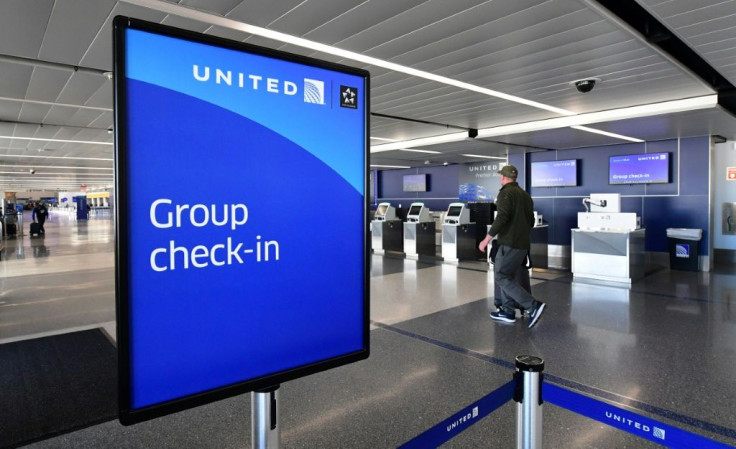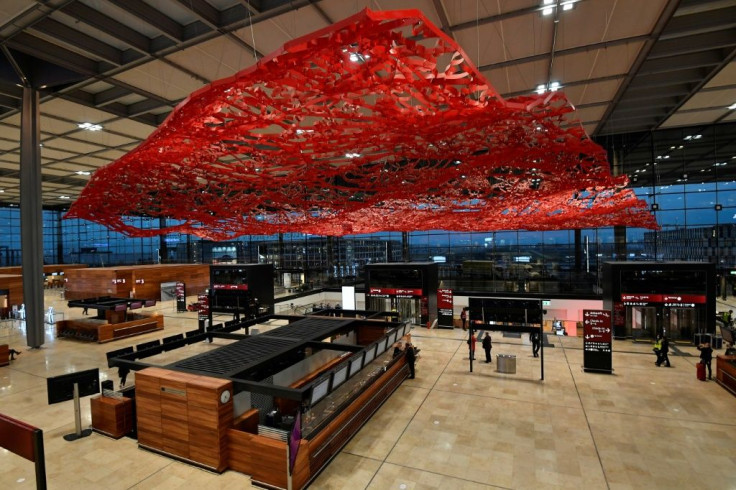Holiday Travel Hacks: 3 Steps To Protect Your Data When Using Public Wi-Fi
As you travel to visit family and friends for the holidays, it goes without saying that making sure that your affairs are kept in order will prevent ruining a good time.
Everyone who travels via an airport has probably found themselves logging onto public Wi-Fi at one point or another whether you're waiting for a boarding call, taking your personal time to check your banking, downloading a boarding pass, or a COVID-19 vaccination card. But COVID-19 is not the only bug to worry about.
Hackers are always excited for the holiday season and many aim to grab personal information over public Wi-Fi. To keep your data safe during your holiday travels, here are three tips to stay safe online:
Stick To Your Data Plan Or Get A VPN
Logging on to an airport’s public Wi-Fi network or one belonging to a business can make your information vulnerable to theft.
Paige Hanson, Chief of Cyber Safety Education at Norton LifeLock, told International Business Times in a phone interview that hackers who use public Wi-Fi are hoping to catch an unsuspecting victim in what the cybersecurity field calls a "man-in-the-middle attack" where you think that you are connecting to your coffee shop's WiFi, but really it belongs to a criminal out for your data.
To protect yourself, Hanson advises following what she calls a “good, better best” approach for protecting data on the go.
A “good” approach, she said, is connecting to a trusted public Wi-Fi network, providing you a decent level of encryption for your data. But a better approach, Hanson suggested, is using data from your mobile plan instead of a Wi-Fi server in the area.
“Using your data plan gives you a little more anonymity unlike public Wi-Fi,” Hanson said. “It makes you less vulnerable to a man in the middle attack because you are not unknowingly connecting to someone else’s Wi-Fi that might be eavesdropping on what we’re doing.”
Beyond anything else, Hanson said that no defense is superior to getting a Virtual Private Network (VPN) on your phone to encrypt your connection. With a VPN, your communications become inaccessible to hackers.

Be Careful Of Which Sites Or Apps You Login To
Your cell phone is hands-down the richest target for any cybercriminal looking to steal valuable data.
Hanson warned that some of the most commonly used and relied upon apps are the most valuable to compromise for a would-be cybercriminal. Personal banking apps, for instance, are on top of the target list alongside any other apps that include sensitive personal information, like social security numbers.
"The biggest threat when using public Wi-Fi is that your activity is being observed," said Hanson.
"That then could lead to the stealing of your information like your personal information, banking credentials, where you are going if you have holiday travel. All of that can be information identity thieves could want."
A newer target for cybercriminals is health apps, including COVID-19 travel apps. Hanson explained that the security these apps provide varies from developer to developer. Like any other app that stores sensitive personal information, she said the best security is provided by the ones with the most encryption and who regularly update their software.
“There’s always flaws or holes or upgrades that these apps are trying to fix,” Hanson said. “If the company that is issuing these apps are not up to [software] standards or making improvements and there’s less encryption, there can be opportunities to grab your personal information when you upload them.”
As is true for nearly every case of cybercrime, always be sure to remember the basic elements of cyber hygiene.
Many apps offer automatic updates that coincide with changes to a cell phone’s operating system, so ensure that you are not missing out on these updates. Especially outside a secure connection, avoid doing any of your financial transactions online, or else they become easier to swipe for criminals. Finally, visit only trusted websites and avoid clicking any unknown links that can contain viruses or open your devices to compromise.
If for any reason you can’t immediately update your apps, remember the above tip about using a VPN or your cellular data to better protect your personal information on the go.

Verify The Correct Public Wi-Fi Network Before Signing In
This one is incredibly basic but is also easily overlooked as a way to avoid signing into a compromised or trap network.
Most people might not think twice about signing in to a public Wi-Fi network of their airport’s Starbucks, but according to Norton, some of the most popular spots at an airport, like coffee shops, are like watering holes for those looking to prey on the unsuspecting victim, so diligence is essential.
Remembering Hanson’s “good, better, best” options, the “good” option to take before signing into a public Wi-Fi network is to verify with an employee that you are selecting the proper one.
There can be deceptively similar networks found by your phone at the same time, but it can end up being a coin toss as to whether or not you picked the safe one or walked right into a man-in-the-middle attack. Hanson said by turning to employees who work at the location, you lower the odds of falling for any traps.
“You’re still risking the security part of it [because] you’re not sure what their security practice is, but at least you know you are connected to their Wi-Fi,” said Hanson.
She did caution that hackers can get creative in how they get to access information by altering signs that have the name of a public Wi-Fi listed on them, but that is where your “better and best” options from before come in.

© Copyright IBTimes 2024. All rights reserved.





















